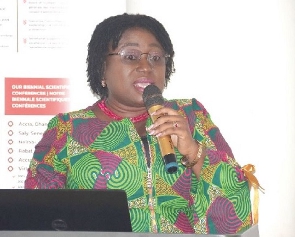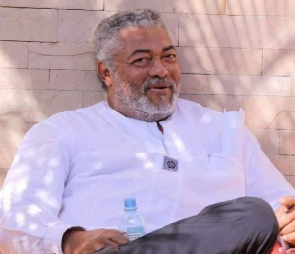Health News of Thursday, 6 July 2023
Source: www.ghanaweb.com
Study reveals alarming lack of contraceptive use among sexually active adolescents
A recent study conducted in three selected public universities in Ghana has shed light on the concerning issue of low contraceptive usage among sexually active adolescents.
According to Graphic report, the study, which involved 675 university respondents, found that a staggering 93 percent of sexually active adolescents in public universities do not use contraceptives, despite having a basic knowledge of adolescent sexual reproductive health (ASRH) issues.
The findings indicate that more than half of the respondents were sexually active and had sexual partners. However, the study highlights the urgent need for greater attention from university authorities and policymakers to address the sexual reproductive health needs of adolescents in public universities.
The study was conducted by Dr. Gifty Ekua Merdiemah, a Research Fellow and Clinical Trials Coordinator at the University of Ghana Medical Centre (UGMC). It was presented at a workshop organized by the African Health Economics and Policy Association (AfHEA) in collaboration with UGMC and the Institute of Statistical Social and Economic Research (ISSER).
Dr. Merdiemah emphasized the importance of addressing adolescents' health needs, including sexual reproductive health (SRH) education, sexual intercourse, and access to contraceptives. The study identified the cost and location of healthcare services as significant barriers preventing adolescents from accessing reproductive health facilities.
Recommendations from the study include the need for stakeholders to collaborate in providing policies and programs that specifically address the SRH needs of adolescents in public universities.
Dr. Merdiemah also suggested implementing well-structured ASRH orientation programs and establishing adolescent health corners with a wide range of SRH services at strategic points within public universities.
Additionally, the Ministry of Education should ensure the availability of age-specific sex education programs in all educational institutions, led by well-trained teachers and peer educators.
During the workshop, Dr. Ama Pokuaa Fenny from ISSER presented the findings of another study titled "Access to adolescent sexual and reproductive health services in Ghana: a qualitative study."
Dr. Fenny highlighted the inadequacy of sex education in schools and the lack of affordable and non-judgmental SRH services.
She emphasized the importance of training teachers and health staff to provide relevant sex education and ensuring the availability and affordability of adolescent-friendly SRH services.
In response to the study's findings, Abdul-Rashid Hassan Pelpuo, the Member of Parliament (MP) for Wa Central, called for increased access to information and services for adolescents.
He stressed the need to multiply the availability of resources that provide adolescents with the necessary support and information to make informed decisions regarding their sexual and reproductive health.
YNA/OGB











